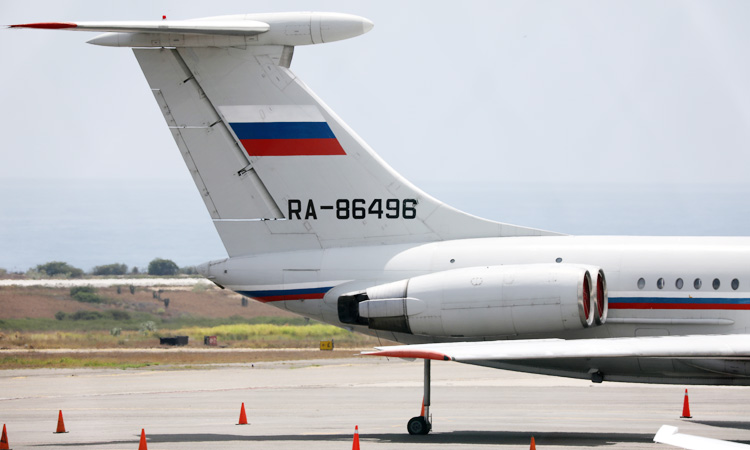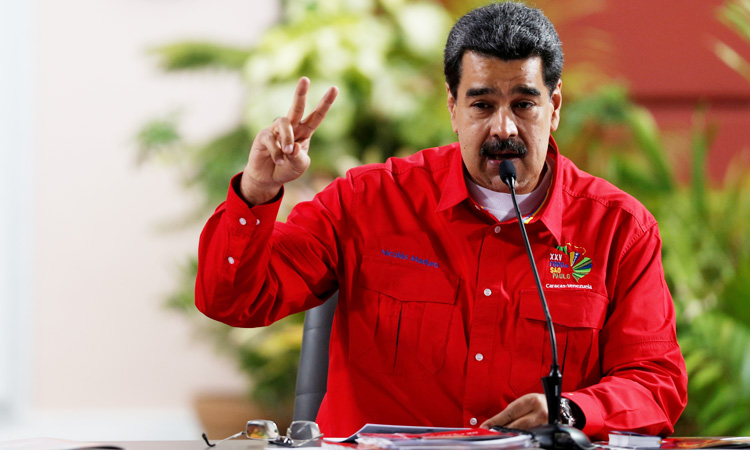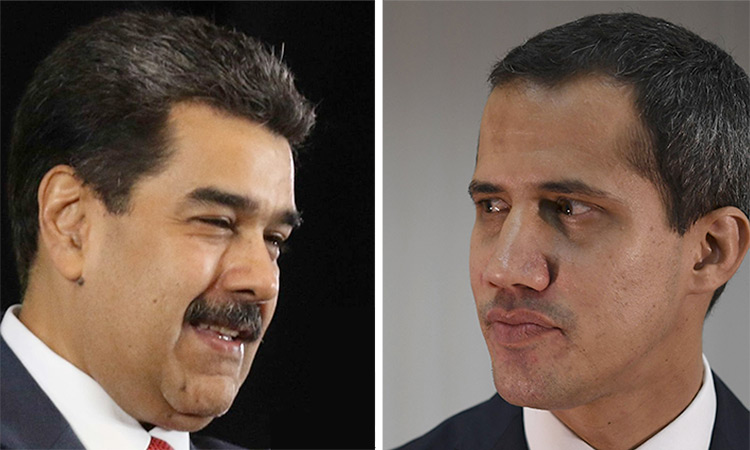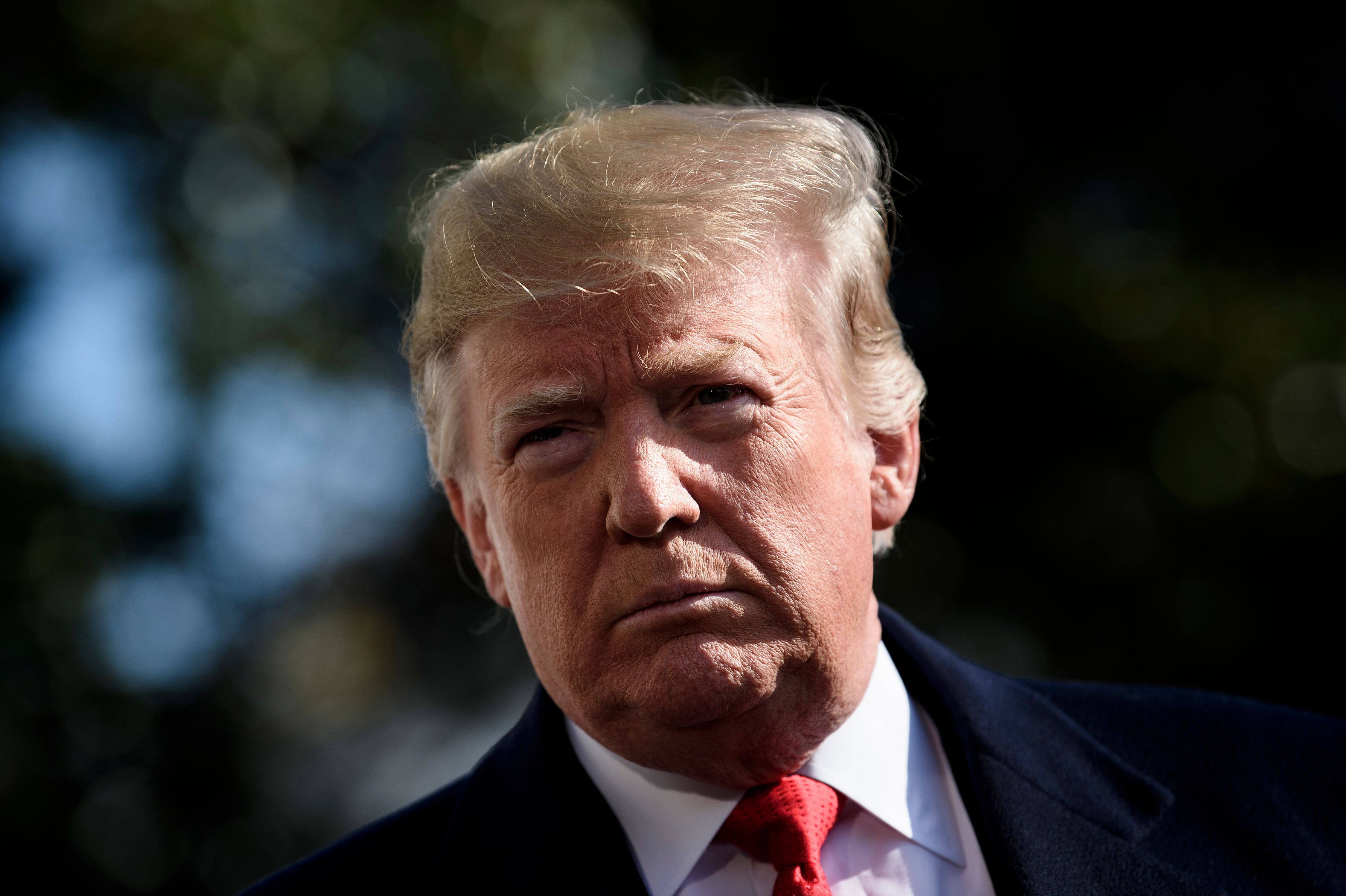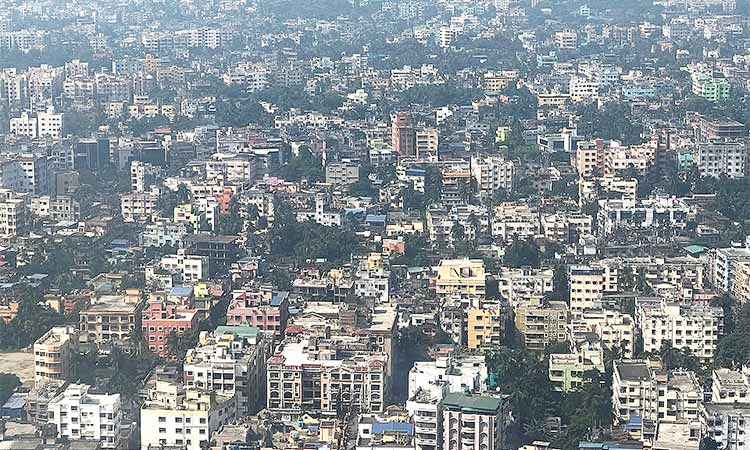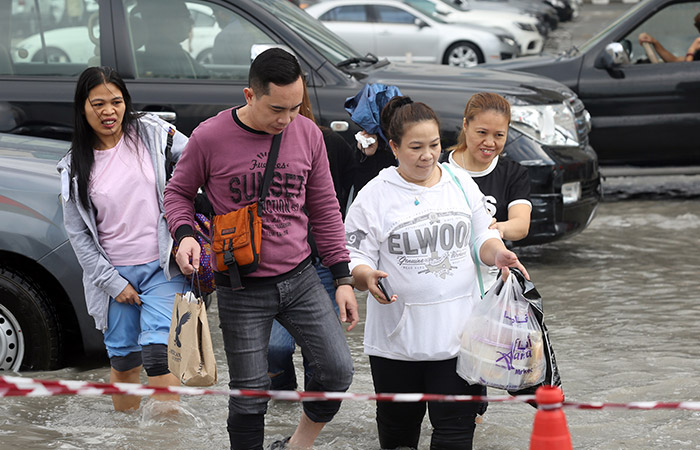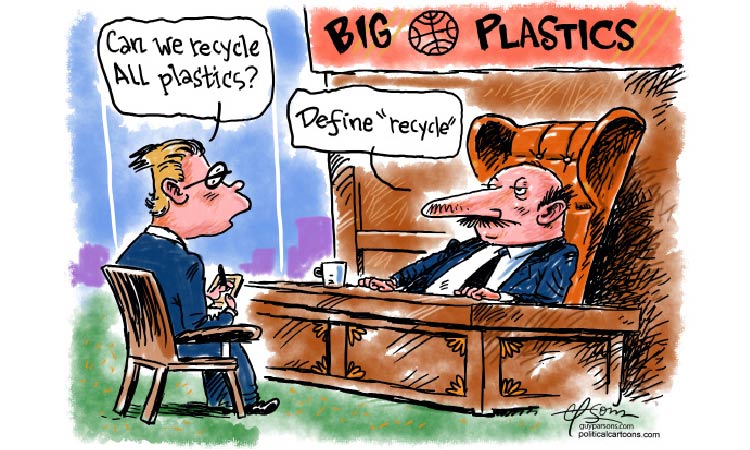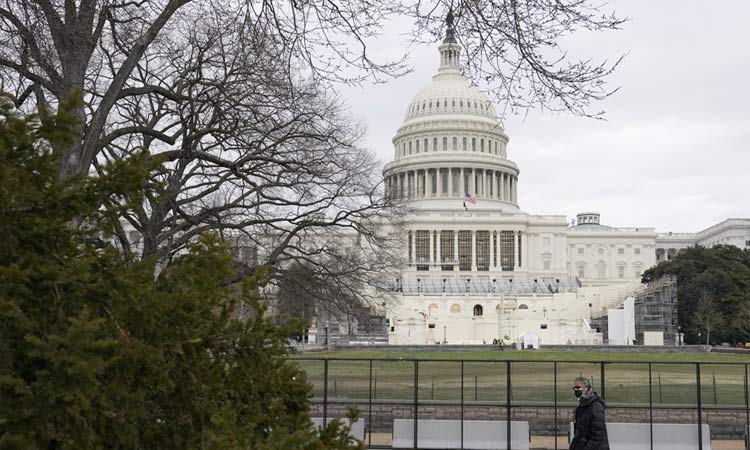Possible US military involvement comes under fire
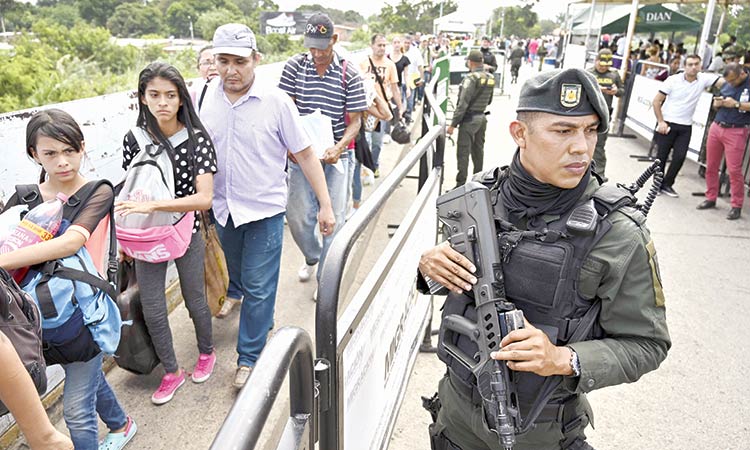
A Colombian police officer stands guard on the Simon Bolivar international bridge in Cucuta, Colombia, on the border with Venezuela, on Friday. Agence France-Presse
Alex Daugherty, Tribune News Service
For months, hawkish Florida Republicans have dominated the narrative on Venezuela, meeting with President Donald Trump days before the US recognised Juan Guaido as the country’s legitimate leader and arguing that the president sees the situation in Venezuela differently than his “America First” desire to pull US troops out of Syria.
But as Nicolas Maduro maintains control of the military three days after Guaido declared Operation Liberty underway, Sen. Rick Scott calls for US troops to enter Venezuela and a senior administration official says “it’s now or never,” other conservative voices close to the president are arguing more forcefully that US military intervention in Venezuela is not the right move.
“I’m not the only Republican urging restraint when it comes to uniformed US military on the ground in Venezuela and I believe the president to be aware that there are some conservatives who hold that view,” Florida Rep. Matt Gaetz said in an interview with the Miami Herald.
Gaetz, a frequent defender of the president on cable news who speaks with him regularly, doesn’t represent South Florida’s large Venezuelan community like Scott, Sen. Marco Rubio and Rep. Mario Diaz-Balart. Instead, he represents a district with one of the highest percentage of military veterans in the country and the home of the 7th Special Forces Group, a unit designed to train friendly Latin American governments.
Any decision to send in ground troops could put Gaetz’s constituents in harm’s way, and he wants to make sure all of the consequences of military intervention have been soundly evaluated by the White House and Pentagon.
“I wouldn’t want anyone to characterise my remarks as against military intervention,” Gaetz said. “I agree, all options should be on the table, but leaping to military intervention in absence of a thorough understanding of the consequences would be a mistake in my view. It’s my fear that at the first casualty at the hands of a U.S. service member, we could see mass protests in capitals beyond Venezuela.”
Gaetz made the same argument on Maria Bartiromo’s Fox Business show on Thursday morning, a show the president frequently calls into or watches. There are three main arguments against military intervention from conservatives. The first, espoused by Kentucky Sen. Rand Paul, is that US military intervention must have approval from Congress. Paul called Scott’s position on sending in troops a “mistake” and said that the president doesn’t have the authority to do it.
And Paul, much like Rubio and Scott, is also in constant communication with the president. He spent the weekend golfing with him.
The second argument, noted by Gaetz, is that any US military action in Venezuela, even if relatively popular in Caracas and Miami, could destabilise South and Central America at a time when more than 1 million Venezuelans have crossed the border into Colombia and migrants from Central America make their way to the US-Mexico border.
And the third argument, noted by Fox News host Tucker Carlson in a recent interview with Diaz-Balart, echoes Trump’s rationale for drawing down troop levels in Syria.
“How, exactly, is any of this good for the United States?” Carlson asked. “Our sanctions in Venezuela have already spiked our gas prices. Are we prepared to absorb millions of new Venezuelan migrants? All of them great people, no question. But many would have little education or skills or would not speak English.”
Carlson repeatedly asked Diaz-Balart to justify the national security threat Venezuela poses to the United States. “What exactly is the threat? Please be specific,” Carlson asked Diaz-Balart.
“We now have Middle Easterners with real, legal Venezuelan passports that we have found,” Diaz-Balart said. “You have Hezbollah, you have Cuba, you have Iran, you have Russia, you have China there. So imagine that if this regime, which is under a lot of international pressure, survives, is it or is it not potentially a green light, an open door for the Russians, for the Chinese, for others to increase their activity against our national security interests right here in our hemisphere?”
“Yeah, no,” Carlson responded. “It’s kind of hard to see what you’re talking about exactly. Are you suggesting they’re going to invade?”
The conservative arguments are different than arguments from some liberals, including Sen. Bernie Sanders and Rep. Ilhan Omar, that Guaido’s push to gain power is part of a US-backed coup attempt. South Florida Democratic lawmakers are generally supportive of sanctions and of Guaido, but have not supported US military intervention.
Rubio and Scott both said Venezuela is different than Syria, Iran and North Korea — countries where Trump has either signaled a willingness to remove US troops or directly negotiate with autocratic leaders — because of its geographical proximity and Maduro’s willingness to keep aid from entering the country.
“I think the president’s right, you don’t want to be someplace forever,” Scott said. “But we have a government in waiting in our hemisphere which is important and the president has been very clear and said all options are on the table, Pompeo made it clear that all options are on the table. What I’ve said right now is let’s use the military, not just the US but every democracy, everyone who cares about this situation, and get it in there and help stop the genocide.”
“To compare this to Syria or anything in the Middle East, they’re not even in the same universe of similarities,” Rubio said. “There are national security threats that are emanating from Venezuela but they’re not the same. They’re severe, but in a much different way than anything we have in the Middle East.”
Gaetz questioned US Southern Command chief Navy Adm. Craig Faller in a hearing on Wednesday about the military’s readiness for potentially intervening in Venezuela.
“US involvement is very popular in Venezuela and with the Venezuelan diaspora, but US direct involvement with uniformed military is very unpopular with every other Latin American country,” Gaetz said. “I just wonder whether or not our military, if we’re planning for the Venezuela crisis to erupt into a broader regional crisis, if the arrival of American troops on the ground gives Maduro the ability to externalize this conflict.”
Faller declined to lay out specific military plans in an unclassified setting. “Our job is to be ready and we’re on the balls of our feet,” Faller said.
But a day after Secretary of State Mike Pompeo said Maduro was sitting on a plane about to take off for Havana and was ordered to stay by the Russians, Trump in a Fox Business interview characterized his Secretary of State’s remark as “rumours.”
“You hear a lot of different rumors. You hear rumors that he was, you hear rumors that he was leaving a different way,” Trump said. “I’m hearing rumours about Russians and I’m hearing a lot about Cuba.”
